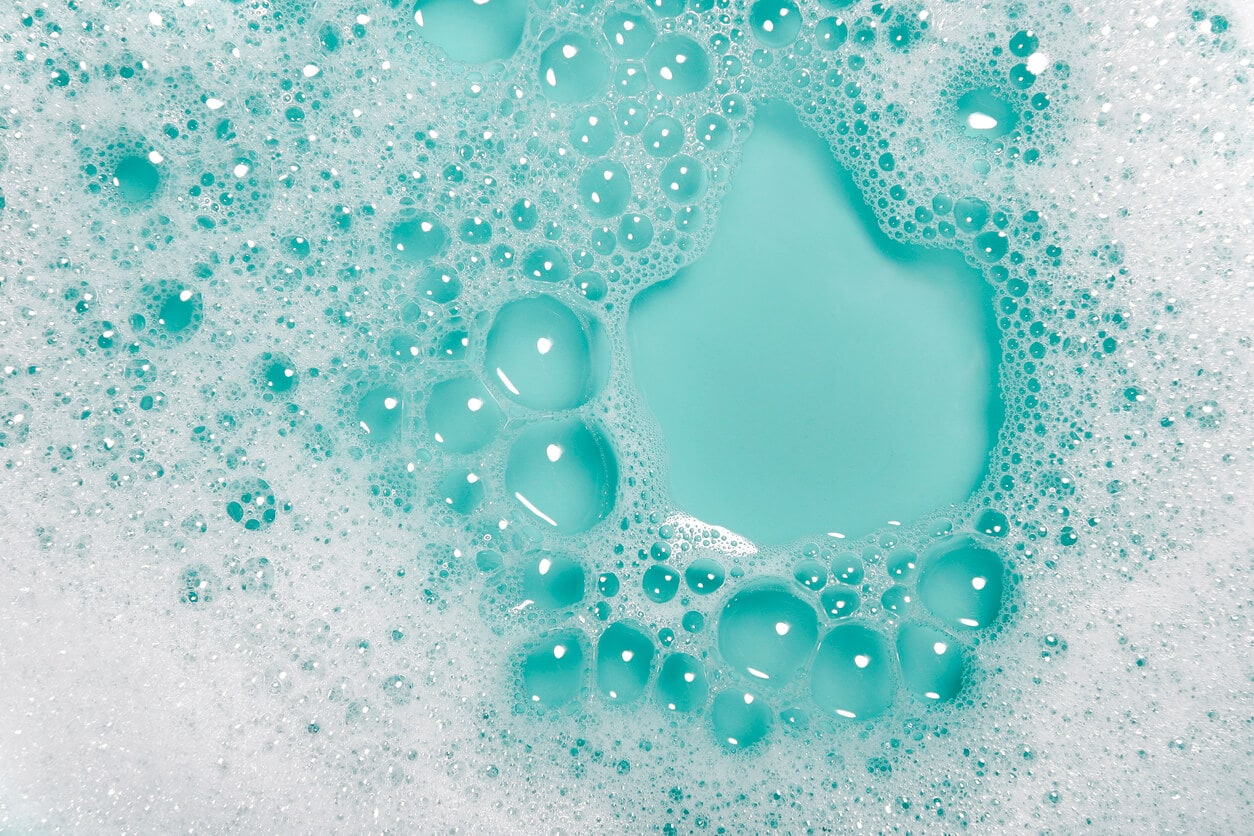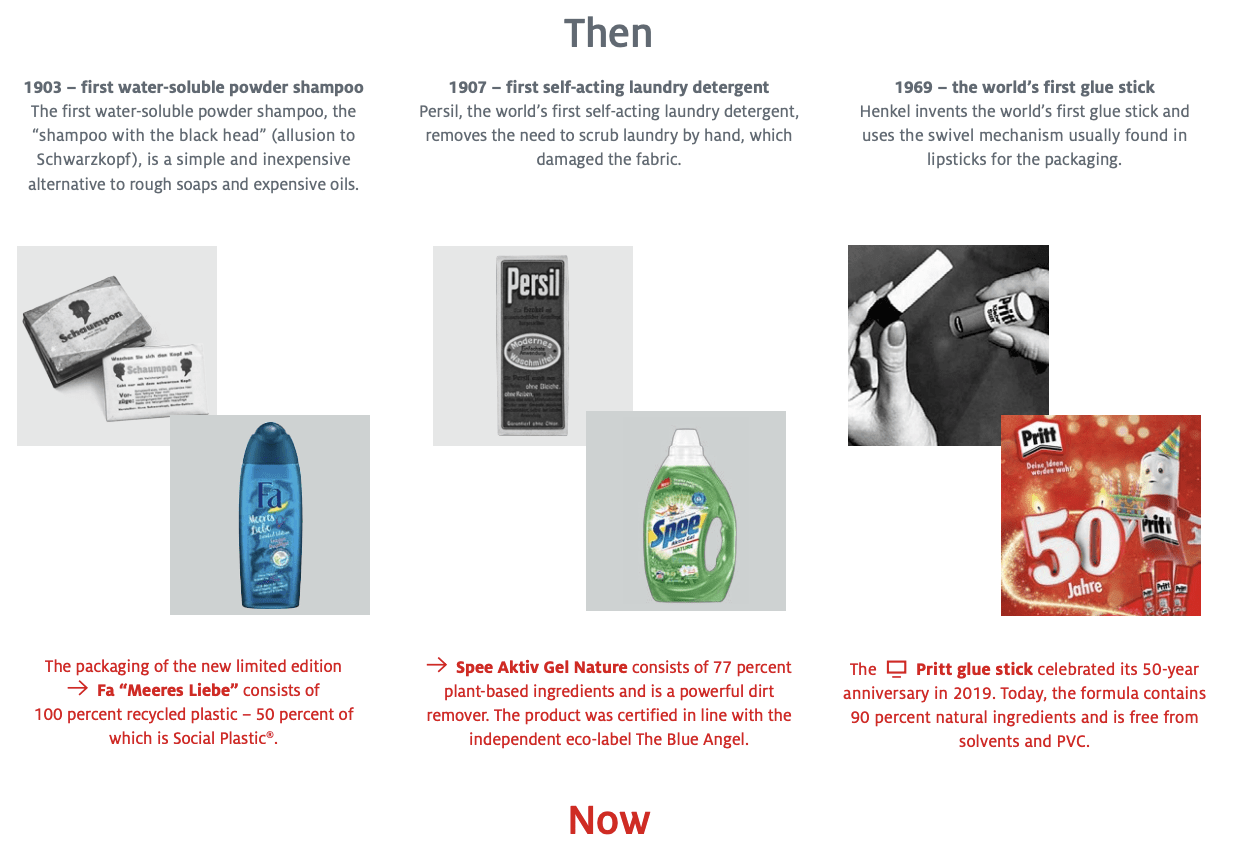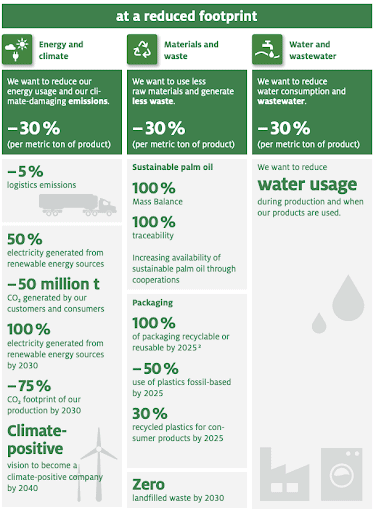
A few weeks ago, I sat down with Dr. Dirk Holbach, Corporate Senior Vice President and CSCO Laundry & Home Care, Managing Director HGSC B.V. at Henkel, to discuss the company’s corporate sustainability initiatives. Henkel is a German consumer goods company with a massive portfolio spanning laundry and home care, beauty care and adhesive technologies. Founded over 140 years ago, Henkel has always been on the forefront of sustainability. From its Sustainability Ambassador program to innovative product development strategies, read on to learn how Henkel has built a culture of sustainability throughout the organization.
Henkel is a leader in sustainability, with a long history of setting impactful goals and reporting on them. How did your organization’s commitment to sustainability start? Was it driven internally or led by external factors?
Our commitment to sustainability has been purely triggered from within. We published our first sustainability report in 1992. Sustainability is one of our five core values. So that means we are looking beyond today and tomorrow, into a mid- to long-term sustainable business development. We believe it has been – and will continue to be – a growing part of doing business.
Over many years, we’ve cut a significant amount of our consumption – energy, water, waste and so forth. And we have clear targets to reduce our CO2 emissions. But in our product category, most of the CO2 is created in the use phase by consumers. In order to maximize sustainable use of our products, we have been investing more into technology and educating consumers. For example, washing at lower temperatures, and providing sustainable chemistry [in our products] to do that. So here we have an impact far beyond the scope of our own operations.

Being such a large company with ambitious goals, what are some of the challenges you face in reaching these sustainability goals?
There are technical limitations within our own consumption. To produce a detergent, you need to dry a liquid and evaporate water, which isn’t possible without energy consumption. We try to improve the process and move to sustainable sourcing of these energy forms.
When it comes to consumer education, that is a longer-term process that requires some investment. Or, to give another example: When it comes to recycled packaging, it’s not only about higher prices, but also availability of high-quality material. Investments into the business to drive sustainability can cost double-digit millions. We see it as our legacy and our DNA; it’s a strategic investment toward the future of the planet and the future of our business.

What do you think is driving more companies to adopt sustainability initiatives? Is this external pressure from the government, consumers or internal stakeholders?
One important factor is that we’ve seen a dynamic shift in how we expect corporations to act on behalf of our planet. In Henkel’s case, almost three decades ago there were some leading minds who really saw these things coming. We wanted to develop our own sustainability trajectory and really measure impact. We look at our own footprint internally, and also the life cycle of our products. On top of that, we look at it from a supply chain perspective: saving energy and creating less waste from end to end.
But it’s not only a good feeling to do something for the environment; it also has financial benefits. That includes all the [financial] performance improvements we have been driving by investing in new technology to make our resource use more efficient, and to gain transparency on our consumption on a real-time basis.
Does Henkel have a full-time team that works on managing sustainability? Do you have any advice for a company that is looking to create a sustainability team?
Yes, this topic is positioned very highly within our organization at management board level. And we’ve had a dedicated sustainability team for many years. For our Laundry & Home Care business unit, we have a small team of full-time professionals dealing with all the coordination and tasks related to sustainability.
In March, we announced a change in our Laundry & Home Care business setup, where one of our two global marketing heads will be in charge of sustainability for our business division. This is a signal from our organization that we take sustainability very seriously, and we are embedding it into our products, our technology, and our communication to consumers. We will continue to work on sustainability within the supply chain, but we will also be able to reinforce that aspect to consumers. We have also developed a very clear strategy to integrate sustainability into product development.
I recommend that companies who want to take this topic seriously start at the top with dedicated resources, and then trickle this commitment down throughout the organization. Eight years ago, we started a Sustainability Ambassador program. Everybody in the company is a Sustainability Ambassador, so that means there is an online training available, and new employees can get a clear picture of how they can impact our sustainability strategy.
. . . . . . . . . . . . . . . . . .
To learn more about Henkel’s commitment to sustainability, check out our recent Virtual Sustainability Summit, where we featured speakers from Coca-Cola North America, Land O’Lakes, Gartner, Consumer Brands Association and CSCMP.